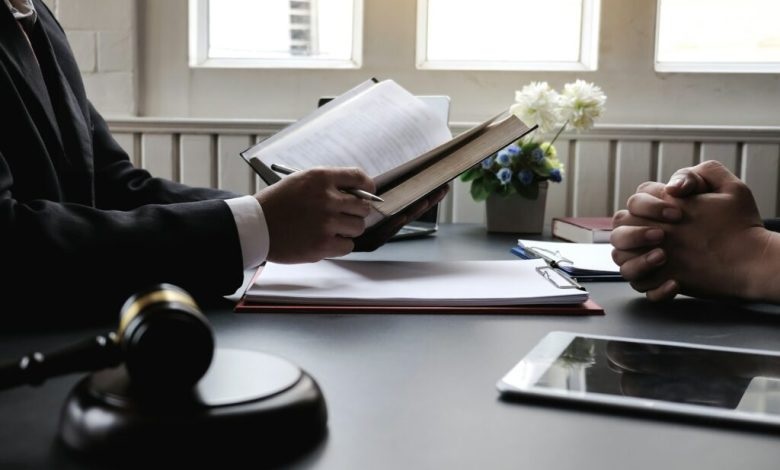Key Takeaways:
- Understanding the crucial role of a defense attorney is essential for legal success.
- Engaging a legal representative early in your case can significantly impact the outcome.
- Identifying and prioritizing key qualities in an attorney can streamline your selection process.
- A comprehensive knowledge of your legal rights empowers decision-making.
- Effective communication forms the foundation of a robust attorney-client relationship.
- Leveraging additional resources enhances your understanding of legal proceedings.
Introduction
Most individuals engaging with legal processes for the first time may liken it to stepping into an elaborate maze, with every turn bringing new twists and turns. Whatever path you are on—family law, criminal charges, or civil disputes—the stakes are high, the landscape is changing before constantly shifting, and the rules are complicated to understand. In this comprehensive guide, we will aptly seek to elaborate on legal representation’s intricacies to enable and empower you to make legal choices with certainty and confidence. Understanding these concepts will better equip you to deal with the responsibilities and eventualities awaiting you.
Understanding the Role of a Defense Attorney
Every aspect of a criminal procedure revolves around an individual’s defense attorney. You expect a defense attorney to do much more than represent you in court. A defense attorney creates a strategy for you, negotiates, and walks you through each step of the complicated legal process. You appreciate their work when they gather evidence and analyze case law because attorneys work hard to devise a legal defense for you that complies with legal requirements, which works to your case’s intricacies. It’s essential to recognize that finding an affordable criminal defense attorney in Atlanta doesn’t mean sacrificing quality representation. Cheap does not have to mean incompetent; instead, it highlights the notion that opposing counsel, despite financial constraints, can ensure that adequate resources are dedicated toward securing necessary expertise.
As mentioned earlier, a litigator’s most significant task is to protect your rights and ensure your side of the story is explained adequately to the court. A defense attorney’s representation is not their only obligation; they also focus on advising you about probable results, preparing you for different situations, guiding you through negotiations and litigations, etc. Every legal action tends to come with a cost, emotionally and financially. A qualified attorney can ease this burden by outlining the subsequent steps needed along with the consequences while focusing on accomplishing maximum results for the case. Trust, communication, and mutual commitment to the case create a strong attorney-client relationship. Understanding the client’s issues, answering their questions, and providing constant updates require the lawyer’s attention and are equally important to address. Selecting a defense attorney during a legal dispute is a crucial decision that requires careful consideration. Having someone with experience will best serve your legal interests while protecting your integrity and future options.
Facing something as complex as the law can be easier with the proper support and direction from someone, even under guidance.
Ultimately, an inexpensive and devoted criminal defense attorney can provide incredible assistance, giving you the peace of mind that comes with knowing your case is being professionally handled.
When to Seek Professional Guidance
Hiring legal counsel at the right time can significantly impact the outcome of your case. Far too many people wait until the last minute when their legal issues are even more complicated than they appear. The moment a legal problem one might face is determined, a criminal charge is suspected, a lawsuit is on the horizon, or a family legal issue is arising, it is highly beneficial to consult a lawyer proactively. A prompt approach to resolving problems allows an attorney to be exceedingly versatile and proactive, using their full strategic arsenal to garner the best possible results.
In addition, early intervention ensures that all relevant evidence is gathered, analyzed, and reviewed. Alternative dispute resolutions can also be considered along with other measures. A clear and concise defense strategy is outlined and prepared from the beginning. Such practices can significantly decrease time and cost, saving money. Advocates and lawyers shed light on things they view and reveal what their clients do not have insight into. They examine every choice and highlight the way forward in a lucid and layman’s way. Always remember that going to court means taking action; it requires business savvy and advanced planning before the fact.
Qualities to Look for in a Legal Representative
Finding the right lawyer entails paying attention to relevant qualities that suit your unique requirements and, more importantly, goals. Most importantly, a lawyer’s work experience is of utmost importance. An attorney who has handled many cases that are similar to yours has a deep understanding of the complexities and established methods that work best. Though case strategy is essential, general experience is also equally important.
One crucial element is “empathy,” the ability to deeply understand clients’ situations, care, and have a concern about them. Advanced empathy often leads to better performance for clients, clients who know how to fight for themselves if instructed in a way, and clients who do not need to plead but be positively represented. Equal importance goes to the ability to evaluate complicated legal matters alongside applied foresight for identifying probable risk factors and possible opportunities. Moreover, knowing proper manners to express ideas or language matters a lot. Not only your lawyer, but your lawyer should guide you where he has to and where you encourage, guiding you on highlighting legal strategies so that the client becomes a co-case holder with little effort.
Moreover, having negotiation skills is one of the great selling points. In criminal and civil litigation cases, most of the work is done ‘off-stage’ in negotiations, where time, costs, and public scrutiny can be minimized through settlements and agreements. A well-versed negotiator attorney can obtain favorable results for his clients without going through prolonged court proceedings.
Informed Decisions: The Importance of Knowing Your Legal Rights
A fully informed client is an empowered one. By understanding your fundamental legal rights, you position yourself as an active advocate for your defense.The right to a fair trial, protection against unreasonable search and seizure, and the right to remain silent are just a few examples of the overarching legal protections afforded to people. But this knowledge is powerful for more than just defense-based action; it enables the client to partner effectively with the attorney, know what questions to pose, and make crucial decisions.
Merely being informed does not cover the domain in discussion. You need to thoroughly process and assimilate the information, comprehending the nuances that could be significant to your case. This enables one to be proactive and protects from undesirable shocks during the proceedings. It fosters the belief that one’s decisions are grounded and fortified with a clear understanding of legal rights and duties. Furthermore, knowing the legally possible outcomes entails working with the lawyer to formulate a working strategy that accounts for the chances and consequences, perils, and outcomes of every action.
Communication: The Heart of Attorney-Client Relationships
The foundation for maneuvering in the legal space is the bond between the two parties, and communication is the pulse of this relation. Proper communication ensures that the lawyer appreciates the client’s objectives, expectations, and information related to the case at hand. In turn, they must relay candid and truthful counter advice concerning attainable outcomes, opportunities, possible barriers, and the legal tactical approaches being maneuvered.
Open communication encourages trust and teamwork. Regular meetings, phone calls, and secure digital communication enable you and your attorney to align on objectives and actions. Everything revolves around maintaining trust; your attorney can create a more complete defense when you feel comfortable disclosing confidential information. When your attorney provides clear explanations regarding their updates and addresses open issues, it eases your anxieties. It allows you to respond better, make decisions faster, and improve your state of mind.
Leveraging Additional Resources for Legal Understanding
Apart from the relationship shared with an attorney, there exist countless resources that can help you broaden your understanding of legal concepts. The assistance that you receive from your attorney can be complemented by legal aid services, online discussion boards, instructional guides, and community training sessions. Learning from outside sources can put complex issues into perspective, allow you to stay updated with new legal changes, and prepare for potential procedure changes that may impact your case.
Going through the resources helps you grasp different perspectives and insights that could be very valuable. Knowledge about scheduling court proceedings or social context relevant to the law matters greatly, and keeping up with the news enhances your interaction with your lawyer. This alters the relationship between the lawyer and client into a formidable alliance intended to deal with the complexities of the law.
Conclusion
Understanding the domain of legal representation requires considering several interrelated factors, including the often overlooked yet critical defense attorney and relevant timing for expert assistance. With resources, knowledge about legal rights, a relationship with the representative, and an informed approach, one embarks on a journey toward overcoming legal difficulties.
Successful navigation of legal boundaries depends entirely on the strength of relationships. Trust, comprehension, and cooperation transform these relationships from highly intricate and overwhelming to more approachable. This, in turn, leads to results that complement your goals and interests. Understanding the legal workings and a clear strategy place you in the most advantageous position to succeed.
Based on how you resonate with these values, selecting an attorney who bears the same as you can be very beneficial during the case and in your experience. An anticipative legal strategy devised alongside the attorney makes adaptation simpler. A productive alliance stems from shared transparency and respect among equals. The likelihood of a favorable outcome increases when both the client and the attorney remain committed and engaged throughout the process. Legal success entails ensuring the complete protection of one’s rights, listening to their voice, and winning the case.






